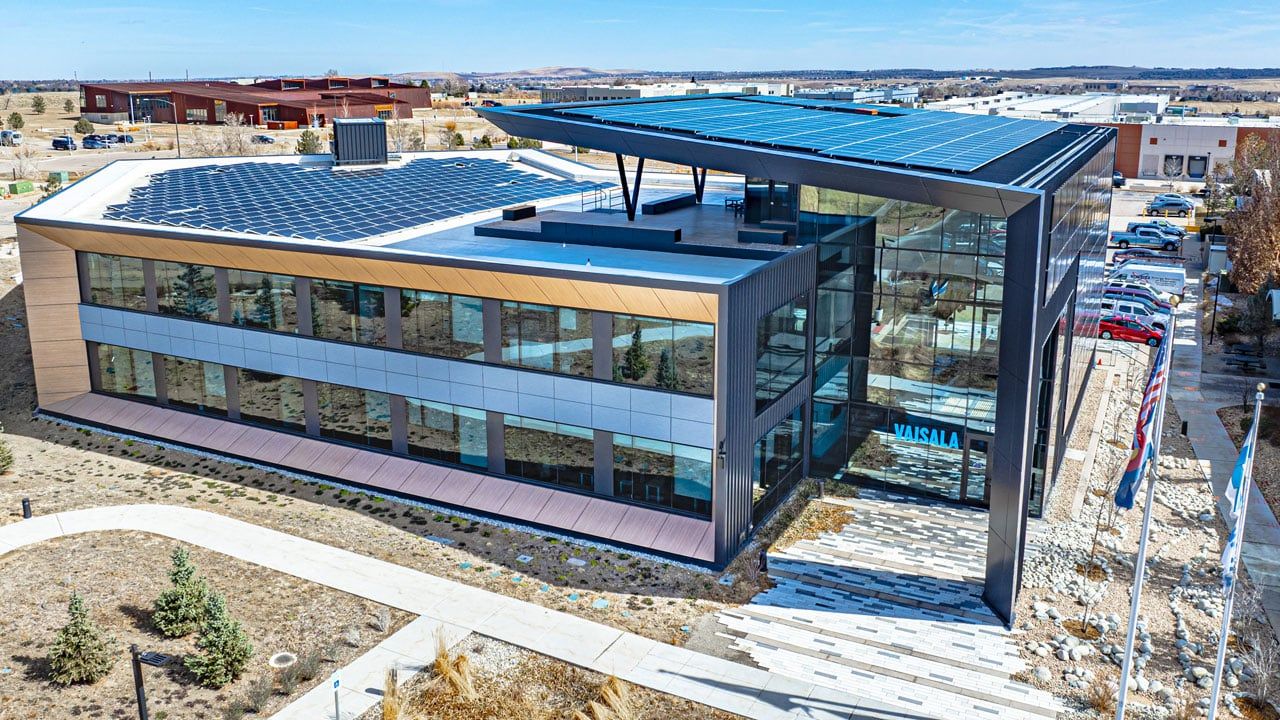Bill to fund UNC, CSU projects OK’d, sent to Polis

DENVER — Colorado lawmakers gave final approval Friday morning to a bill that will fund a College of Osteopathic Medicine at the University of Northern Colorado in Greeley and a Veterinary Health and Education Complex at Colorado State University in Fort Collins.
House Bill 24-1231, which passed the state House of Representatives in February and the state Senate on Friday, now awaits Gov. Jared Polis’ signature. More than half of the bill’s $247 million appropriation will help UNC construct a building for the medical college, while the rest will go toward the CSU veterinary school and two other projects. The bipartisan bill, sponsored by Reps. Mary Young, D-Greeley, and Lindsey Daugherty, D-Arvada, and Sens. Barbara Kirkmeyer, R-Brighton, and Kyle Mullica, D-Thornton, also will fund construction of a Health Institute Tower at Metropolitan State University in Denver and renovation of the Valley Campus main building at Trinidad State College.
UNC’s new osteopathic school will enroll 150 medical students annually, with an inaugural class anticipated to start as early as fall 2026. The bill allocates $127.5 million toward its construction, startup and accreditation expenses through Certificates of Participation funding. The state will also use approximately $41 million of its statutory reserve to strategically invest in the escrow needs of the project, as required by the Commission on Osteopathic College Accreditation.
SPONSORED CONTENT
Commercial Solar is a big investment, but not an overwhelming one
Solar offers a significant economic benefit for commercial property owners while also positively impacting the environment and offering a path to compliance for new municipal requirements like Energize Denver. A local, experienced solar installer will help you navigate the complexities of commercial solar to achieve financial success for your project.
The school’s opening is designed to help address Colorado’s shortage of physicians. According to the U.S. Health Resources and Services Administration, 65% of the state’s physician needs are still unmet, and last year all but three of Colorado’s 64 counties lacked enough primary-care health professionals.
The college also has the potential to be a powerful economic engine for Weld County and the state. A newly released study conducted by Lightcast projected a $1.4 billion boost to Colorado’s economy over the next 20 years, along with $84 million in taxpayer benefits. The study further projected that the new college will continue to positively impact Coloradans well into the future, contributing at least $197.2 million annually in added income to the state’s economy even after the 20-year period analyzed in the study.
In a prepared statement issued Friday, UNC President Andy Feinstein emphasized the role the new medical school will play in strengthening the state’s health care workforce, particularly in rural communities, adding that “the College of Osteopathic Medicine will yield dividends for Colorado, today and for generations to come.”
UNC officials have said opening the school requires a minimum investment of $200 million. In addition to securing funding from the state, UNC has received $31 million from donors including $25 million from The Weld Trust to support this transformative initiative.
UNC’s decision to focus on creating a college that grants Doctor of Osteopathic Medicine (DO) degrees, as opposed to one that grants Doctor of Medicine (MD) degrees as does the University of Colorado School of Medicine, is intentional, university officials told BizWest last year. While both degree programs lead to the practice of medicine as a physician, osteopathic medicine is one of the fastest-growing health care professions in the country and the field has a long tradition of providing care in rural and underserved areas.
At CSU, President Amy Parsons on Friday expressed gratitude for “the forward-thinking, proactive approach the governor and General Assembly are taking to address Colorado’s health-care workforce shortage. This investment in CSU’s new Veterinary Health and Education Complex will transform the university’s already world-renowned veterinary medical program.
“With the new complex, we will be able to bring excellent education, ground-breaking research and accessible patient care together into state-of-the art facilities,” Parsons said in a prepared statement. “CSU will increase veterinary student enrollment, enhance the experiential education we deliver and provide top-quality care to a growing number of patients from across the state.”
CSU last year announced its plan to expand the veterinary education facility, and the bill approved Friday will provide $50 million to incorporate more modern equipment and update teaching methods.
“It’s really a transformational project that will upgrade older facilities and also add a primary-care clinic for both training and service to the community,” said Sue VandeWoude, dean of the College of Veterinary Medicine and Biomedical Sciences. “We’re updating our curriculum, which really hasn’t been updated in several decades, to match what other professional programs have found to be the best way to educate.”
Expansion of the complex also will allow the college to increase its class size by up to 20% to fill the gap in the field of veterinary medicine, primarily in rural areas.
Like UNC, CSU aims to both finish the new veterinary teaching complex and have the new curriculum rolled out in 2026.
The $230 million expansion and upgrade will feature a larger primary-care clinic that will aid CSU in training job-ready veterinarians and provide better community access to its veterinary care. It also includes construction of a $13 million Livestock Veterinary Hospital, planned to open early next year and adjoining the Johnson Family Equine Hospital.
The existing James L. Voss Veterinary Teaching Hospital was constructed in 1978.
The new complex will nearly double the size of the teaching hospital and allow CSU to admit 30 new students to its veterinary medicine program each year, growing the class size to about 170.
Legislature passes and sends to the governor a bill to create an osteopathic medical school at the University of Northern Colorado and upgrade the veterinary medicine school at Colorado State University.
THIS ARTICLE IS FOR SUBSCRIBERS ONLY
Continue reading for less than $3 per week!
Get a month of award-winning local business news, trends and insights
Access award-winning content today!


